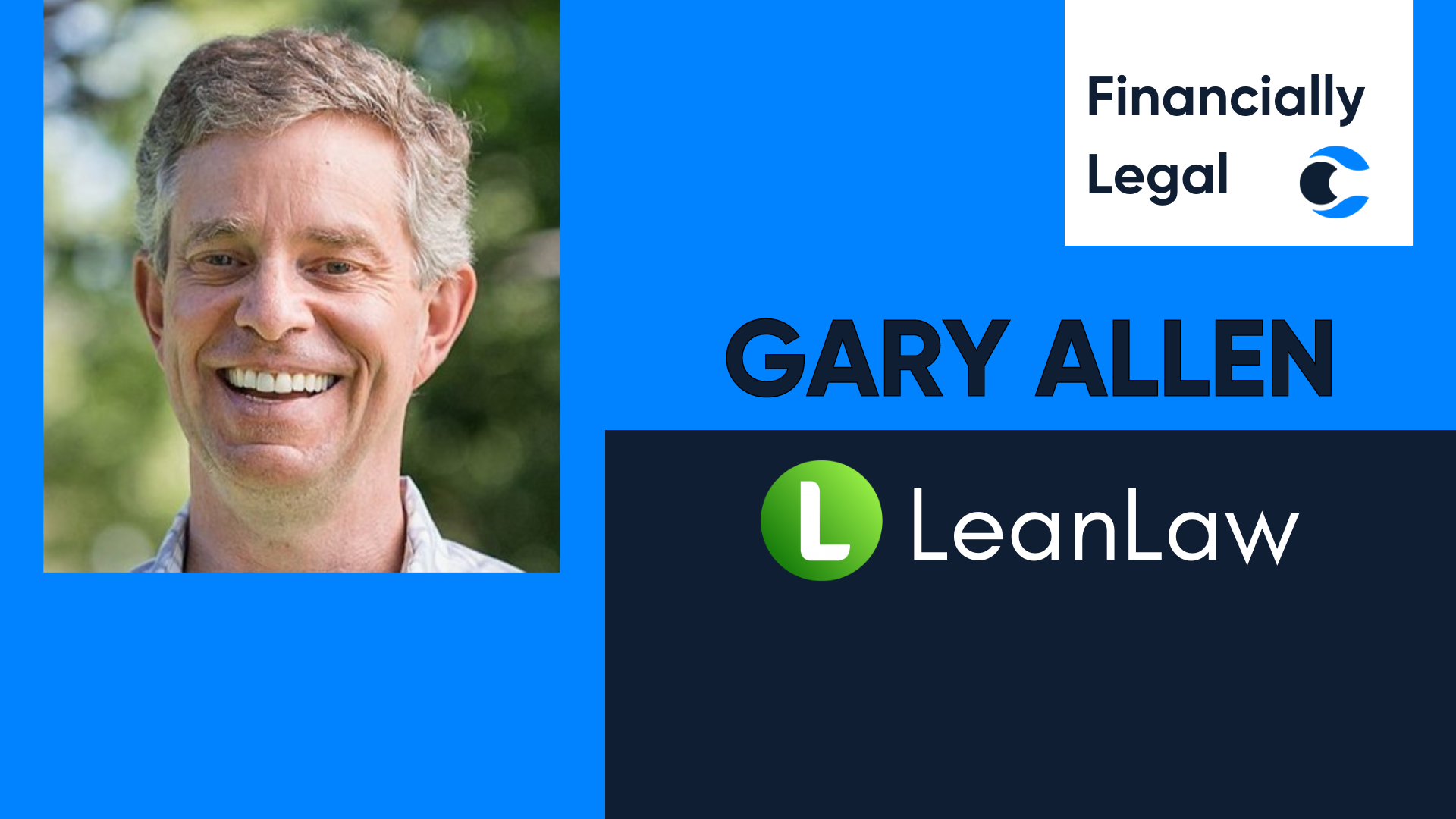In this Financially Legal episode, host Emery Wager interviewed Gary Allen, who recently retired from a multi-decade legal career. Gary’s extensive experience includes building a million-dollar practice in environmental and land use law at Givens Pursley and co-founding LeanLaw to help other firms operationalize the best practices he learned the hard way.
Gray is passionate about helping firms understand the financial state of their businesses and enact small changes that make a big impact. Read on for the highlights or watch the full episode here:
Gary's Early Career
Gary's legal career began in a small San Diego firm that was not well-managed. The lack of business training in law school left him unprepared for the financial and operational challenges he encountered. The firm's eventual breakup served as a harsh lesson in the importance of good management. Gary moved to a larger firm, which provided some stability but came with other challenges, including sky-high overhead costs and a demanding workload.
Gary vividly remembers the firm carrying overhead of $220,000 per lawyer. This led to a critical realization: law firms often focus too much on generating revenue and not enough on managing overhead. Revenue must be continually earned, but savings on overhead persist month-over-month.
Gary's career took a positive turn when he joined Givens Pursley in Boise. The firm, under the leadership of managing partner Ken Pursley, maintained low overhead and emphasized individual accountability. This environment allowed Gary to thrive, leading to a 30-year career at the firm.
Gary shared that one of the most significant differences between a well-run firm and a struggling one is the burden of high overhead. At Givens Pursley, the reduced overhead lifted a weight off the lawyers, allowing them to focus on practicing law and enhancing their individual productivity. The firm’s approach promoted flexibility and supported a healthy work-life balance, which was particularly beneficial for partners who needed to focus on family responsibilities at different points in their careers.
Founding LeanLaw
Gary’s entrepreneurial journey began in 2015. While practicing environmental and land use law, Gary realized there was a significant gap in the legal tech market. Many law firms struggled with inefficient billing and financial management processes, which directly impacted their profitability and operational efficiency.
Driven by this insight, Gary co-founded LeanLaw, a platform designed to optimize law firm financial operations. LeanLaw aimed to streamline the billing process, reduce overhead, and improve financial transparency for law firms of all sizes. LeanLaw focuses on optimizing financial metrics and operational workflows, surfacing common issues like high overhead, poor utilization, and low collection rates. Through LeanLaw, Gary has helped thousands of law firms improve their financial health and operational efficiency.
Key Metrics for Law Firm Success
Gary highlighted several critical financial metrics that law firms should monitor:
- Capacity: The total potential billing amount based on available attorney hours.
- Utilization: The percentage of billable time worked.
- Realization: The percentage of worked time that is billed to clients.
- Collection: The percentage of billed time that is actually collected.
- Overhead: The costs associated with running the firm, excluding billable timekeeper salaries.
Gary emphasized the significance of these metrics in understanding and improving a law firm's financial health. For example, optimizing utilization and realization rates can significantly boost revenue. Similarly, efficient collection practices ensure steady cash flow, reducing reliance on credit lines and improving financial stability.
Compensation Strategies for Law Firms
Gary and Emery wrapped up with a discussion on law firm compensation. Compensation in law firms is a critical issue that impacts overall firm performance and attorney satisfaction. Gary shared insights into effective compensation strategies that align with key performance metrics.
He emphasized the importance of using objective systems for determining compensation. Metrics like capacity, utilization, realization, and collection rates are essential for creating transparent and fair compensation structures. This approach incentivizes productivity and aligns individual goals with the firm's success.
A key takeaway from the webinar was the focus on creating an objective system that compensates attorneys based on their roles and contributions. Gary mentioned the traditional "finder, minder, grinder" approach, which compensates originating attorneys, responsible attorneys, and working attorneys. This system can also include equity and subjective components like management responsibilities.
Implementing an effective compensation strategy requires a modern approach to billing and collections. Gary highlighted the importance of moving from paper-based systems to electronic invoicing and payments, which can significantly improve a firm's financial performance.
Going Further
To get in touch with Gary or get a copy of the law firm financial scorecard Gary covered in this episode, reach out to him on LinkedIn or contact the team at LeanLaw.



